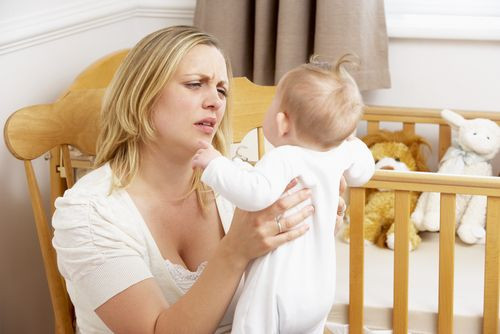Shorter Maternity Leave Linked To Postpartum Depression: Returning To Work After 12 Weeks May Lead To Poor Mental, Physical Health

Postpartum may be a stressful and overwhelming time for moms. Thoughts about whether they will be a good mother, if the baby will be healthy, and if they can financially provide for their newborn can consume their minds, especially during maternity leave. Shorter duration of maternity leave is found to be associated with an increased risk of postpartum depression, according to a recent study.
In the U.S. the Family and Medical Leave Act (FMLA) allows eligible employees of covered employers to take unpaid, job-protected leave for specific family and medical reasons with the continuation of group health insurance coverage under the same terms and conditions as if they had not taken leave. The 12 workweeks of leave in a 12-month period include the birth of a child and to care for the newborn child within one year of birth. However, many women are not covered by FMLA, or often cannot afford to take unpaid leave, which leaves many women back to work sooner than the ideal for optimal maternal postpartum health.
A mom’s responsibility for the baby, the household and her work duties upon returning from maternity leave could affect her risk of developing postpartum depression. After delivering a child, new mothers face the challenge of balancing the care for their infant while also coping with their postpartum health, home, and work life. Going back to work in such a short time span can induce postpartum depression with the recent added stress of looking over their newborn and easing their way back into a work routine.
Published in the Journal of Health Politics, Policy, and Law, a team of researchers led by Dr. Rada K. Dagher, assistant professor of health services administration at the University of Maryland School of Public Health, assessed the association between maternity leave duration and depression symptoms in employed women who just gave birth for one year. Typically, the first year after childbirth presents a high risk of depression for women, with approximately 13 percent of all mothers experiencing postpartum depression with symptoms similar to clinical depression, wrote the researchers.
Data obtained from the Maternal Postpartum Health Study consisted of more than 800 women in Minnesota who were employed and 18 years of age or older. Depression symptoms and mental and physical health of the new moms were measured at six weeks, 12 weeks, six months, and 12 months postpartum via telephone interviews. The Edinburgh Postnatal Depression Scale was used to examine levels of postpartum depression, collecting responses such as: "In the past 7 days, I have been able to laugh and see the funny side of things.” Responses ranged from “as much as I always could” to “not at all.”
The new moms returned to work at the six weeks, 12 weeks, and six months time frames. An increase in leave duration was associated with significantly lower postpartum depression scores compared to moms who had returned to work. In the study, seven percent of the mothers were back to work by six weeks, 46 percent by 12 weeks, and 87 percent by six months.
The positive association found between leave duration and physical health suggests that taking leave from work gives mothers the time to rest and recover from pregnancy and childbirth. The researchers believe the current leave duration provided by the FMLA may not be sufficient for mothers who are at risk or are experiencing postpartum depression.
"Employers should consider providing more generous leaves than the 12 weeks of unpaid leave granted by the FMLA through expanding the duration of leave given or providing paid leave or both," said Dr. Dagher, in the press release.
The report also made note that the U.S. lags behind all other industrialized terms in regards to its parental leave policies. Research including 181 countries across the world highlights the U.S. is one of only three countries that does not provide paid maternity leave, Papua New Guinea and Swaziland. Researchers urge that future leave policy should take into account the postpartum health of mothers when debating issues related to the FMLA.
The American Psychological Association says an estimated nine to 16 percent of women will experience postpartum depression. Symptoms of the mental health condition last longer and are more severe than the typical baby blues after childbirth, such as mood swings, sadness, anxiety or feeling overwhelmed, losing appetite, or having trouble sleeping. Hormonal and physical changes after birth and the stress of a newborn are suspected to play a role in the cause of the condition.
To learn more about the causes of postpartum depression, click here.
Source: Dowd BE and McGovern PM. Maternity Leave Duration and Postpartum Mental and Physical Health: Implications for Leave Policies. Journal of Health Politics, Policy and Law. 2013.
Published by Medicaldaily.com



























